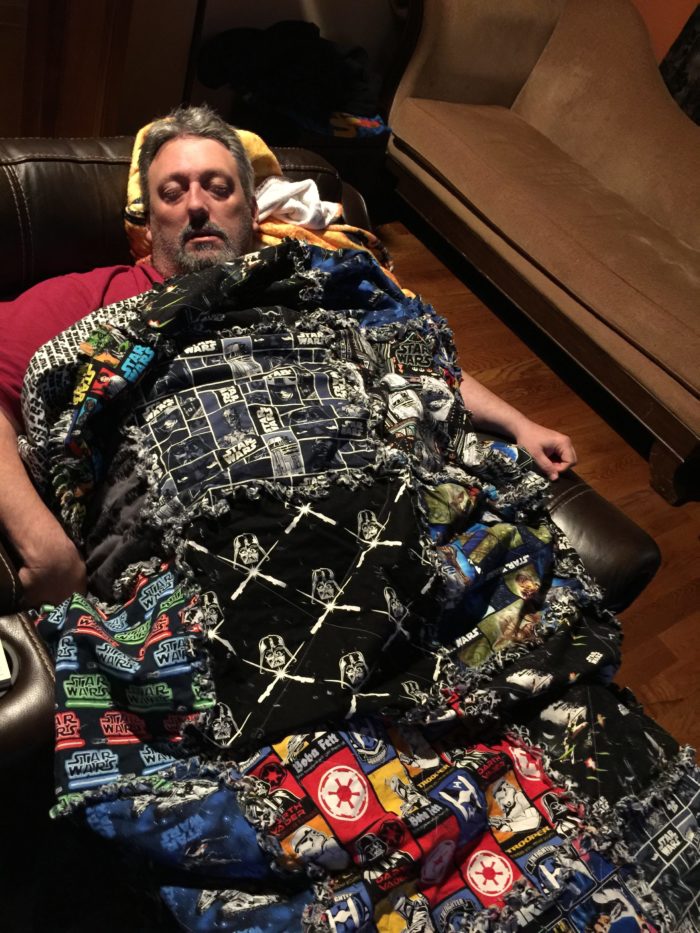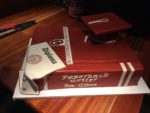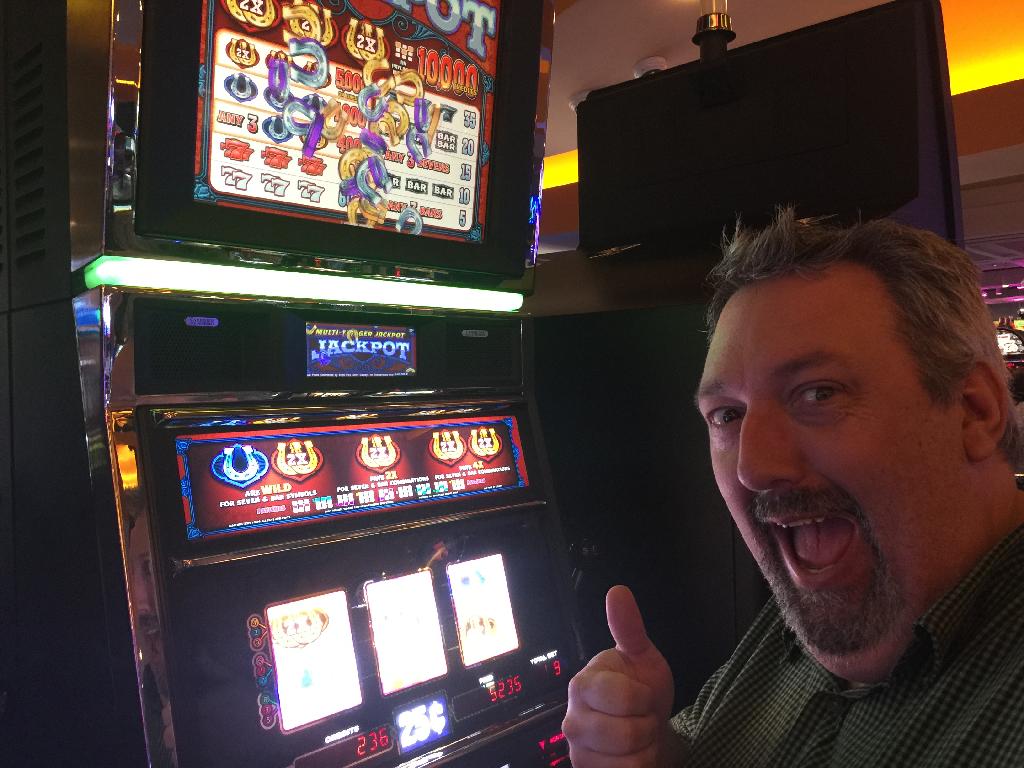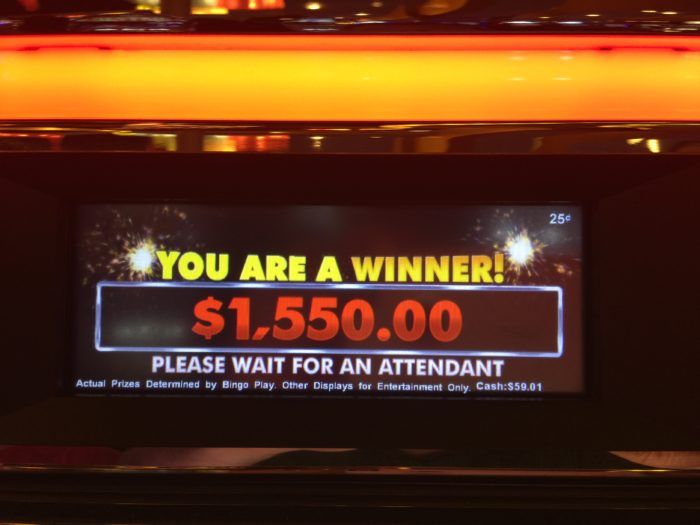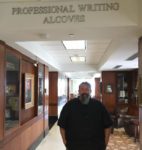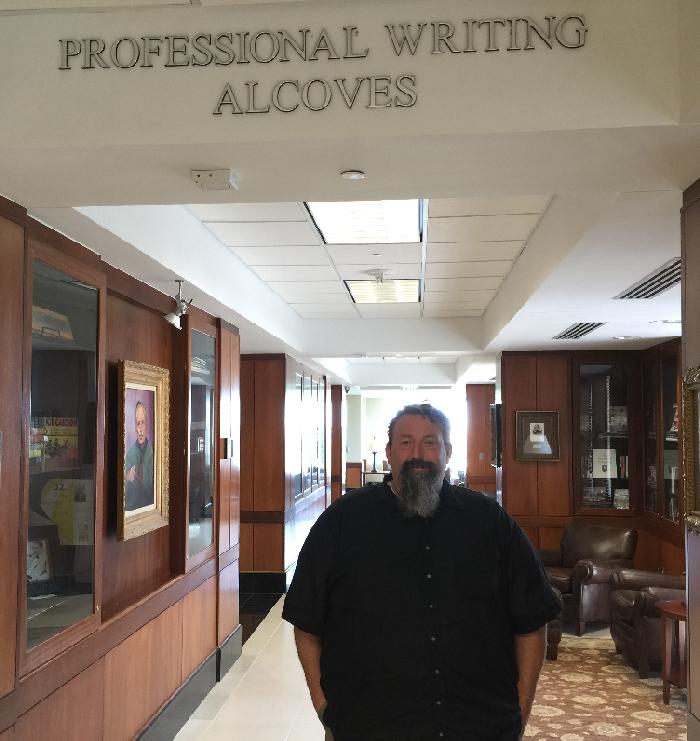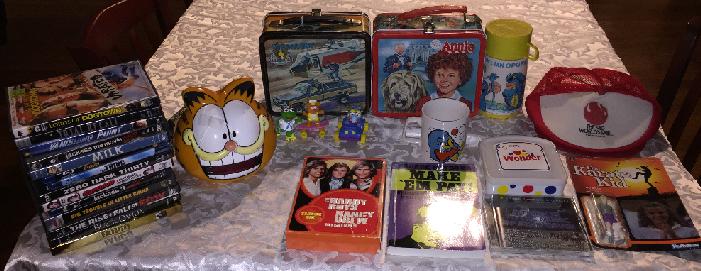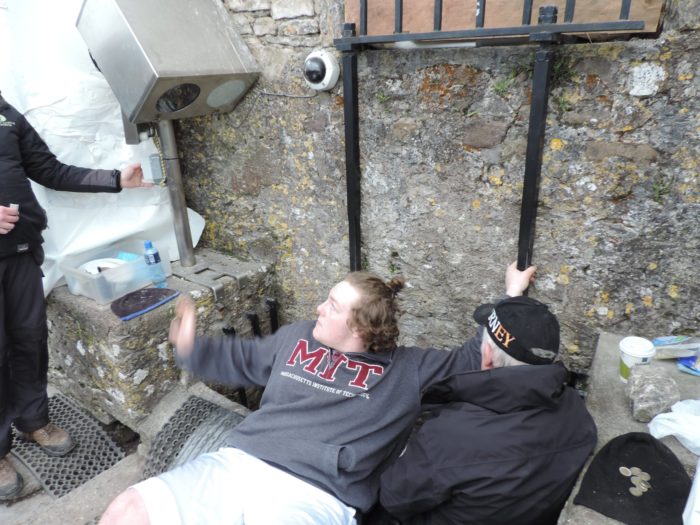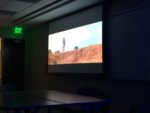When I get really stressed out, the pressure manifests itself in the form of back pain. Cramps form in both my lower and upper back, and spread until they meet somewhere in the middle. By 8 a.m. last Saturday, I had already taken one round of Ibuprofen, and had a second round of pills stashed in my pocket for later.
I’ve never been one to count my chickens before they hatch. Even though I had already successfully defended my graduate project the week before and seen my grades posted online, I refused to admit I had graduated until I had walked across the stage, shook hands with the dean, and physically held my diploma in my hands.
Saturday began with an intimate induction ceremony into Kappa Tau Alpha, the national honors society for journalism and mass communication. The criteria for grad students to get nominated was maintaining a 4.0 GPA throughout the entire program, and as such there were only two of us from my program there. After a few words from each of the school’s deans, the twenty or so journalism and mass communication students walked across the stage one at a time to receive our honors cords, which will become a permanent part of our regalia.
An almost two-hour break between ceremonies gave us plenty of time to move from one building to the next. After donning our caps and gowns, graduates were moved from a holding area in one building to the McCasland Field House. In the Journalism and Mass Communication college, there were 270 graduates, 17 (I think) of which were grad students. My two fellow professional writing classmates and I were the third, fourth, and fifth people to walk the stage, so we spent most of the ceremony watching the other 265 people cross the stage from our front row seats, whispering comments that only creative writers could come up with. The professional writing students got the loudest and most raucous cheers of anyone as we walked across the stage. (This is patently false, but as a writer, I felt empowered to change that part.)
There were handshakes and smiles and photos and suddenly it was all over.
A few hours later, Susan threw a post-graduation party for me at Charlston’s, where we were joined by several of our dear friends and family members. Susan purchased an incredible cake that looked just like a book with a diploma draped over it and a graduation cap sitting on top. The cake tasted as good as it looked! Even though Susan asked everyone not to bring gifts, several people gifted me bottles of alcohol, coffee mugs, and candy. You can’t say they don’t know me! My buddy Jeff got me an autographed book by Christopher Moore (one of my favorite authors) and his mother gave me a one-of-a-kind handmade Star Wars quilt. The best gift of all was being able to share the day with so many close friends and family. It was a great way to wrap up the day.
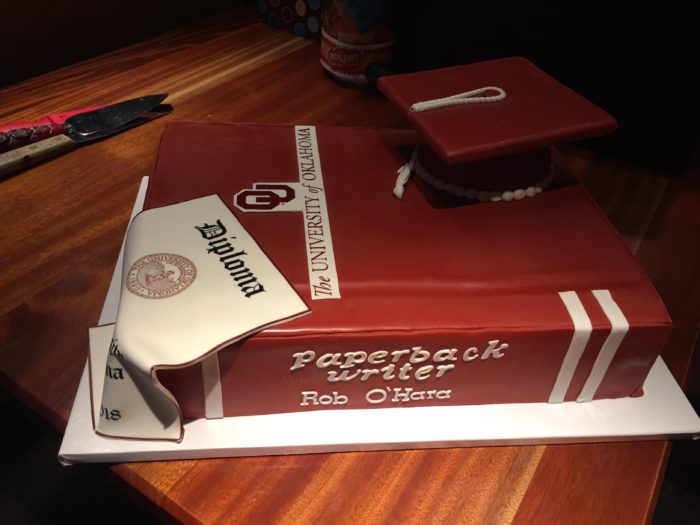
When I get home after a day like that, I can physically feel the stress leaving my body. My legs twitch as the muscles in my back slowly release their grip. As I snuggled into my recliner, wrapped in my new Star Wars quilt, I thought back on the day. The pomp and circumstance of graduation is a bit silly when you think about it — the ritual of people walking around in robes and funny hats, congratulating one another. I almost didn’t go to graduation, but in retrospect I’m glad I did. It’s not about the ceremony itself, but what the ceremony represents: the hours and years of work that got us all to that point. Every person who walked across that stage, and every stage, has a story of how they got there, the sacrifices they made, and the sweat they put in. Before going I felt like graduation ceremonies were a little self-serving, and, after having sat through one, I’m okay with that.
As I closed my eyes, I thought about all the people who helped get me to this point — my professors, my family, and most of all, Susan. It was my wife who discovered the professional writing program at the University of Oklahoma, and prodded me to enroll. She was there before the beginning, and carried leftover cake from the restaurant after the party ended. Without her, none of this would have happened.
My final thought before drifting off to sleep was that my back didn’t hurt anymore.
